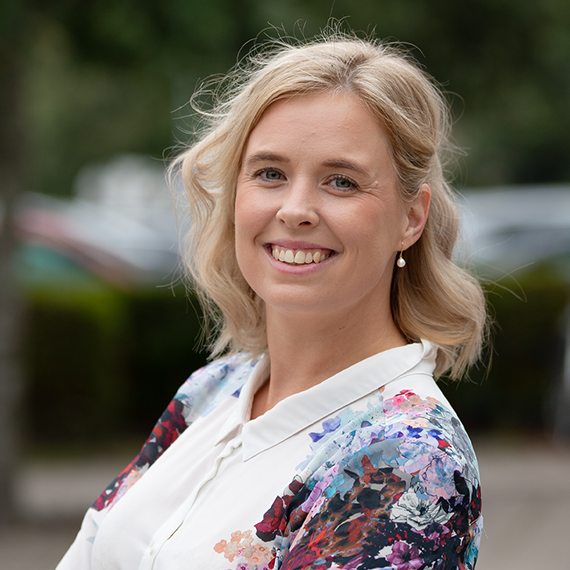Between ideals and reality – why sustainable consumption is harder than we think
2025-10-01What does it actually mean to be a sustainable consumer? And why is it so hard to live up to the ideals, even when the willingness is there? In her doctoral thesis, Anne-Charlotte Paas, who recently completed her PhD in Business Administration at Karlstad Business School, wanted to know more about why it is so difficult to lead a sustainable life despite the threat of our planet’s collapse.
The doctoral thesis “Of Course I Want to Be Sustainable, but… : A Qualitative Study on Sustainable Consumption and Identity Construction” highlights the challenges of making everyday life as sustainable as possible. Household waste needs to be sorted, cycling or public transport should be the first choice, electronics should be switched off when not in use and food should ideally be organic. There is a lot to stay on top of to keep a clear conscience. These are the challenges that Anne-Charlotte Paas wanted to explore in her doctoral thesis.
– It all really stems from an interest that began when I was studying for my master’s degree in marketing and consumption, where sustainability in various forms was a big part of the courses, says Anne-Charlotte. I find it fascinating that we are facing an extremely critical development in terms of sustainability, yet it’s still so difficult for many people to live more sustainably. I wanted to know more about that.
So, why is it so hard to do the right thing – even when we know what is at stake?
– A sustainable consumer tries to take responsibility for the environment and society in their choices, but it’s not as easy as it sounds, says Anne-Charlotte. What counts as sustainable varies, and consumers often have to interpret and balance different messages. There is also an ideal image that many people find unattainable, which makes it difficult to identify with.
Sustainable consumption often involves negotiating between ideals and reality. It could be about wanting to buy organic food but choosing the cheaper option because of a tight budget. Or taking the car for practical reasons, even though you would prefer to cycle. Practical obstacles can also cause problems for those who want to live sustainably. Price and time are two obstacles that Anne-Charlotte identified. But those are not the only problems.
– As consumers, we need support systems to be able to make sustainable choices and it’s also important that sustainable alternatives are easily accessible. It may sound like a cliché, but the right thing must be the easy thing.
Another issue that Anne-Charlotte discovered in her research is linked to social norms.
– We are strongly influenced by social norms, both by what we believe others do and what we believe they expect of us. This can serve as both a motivator and a barrier to sustainable choices. Sometimes people play down their sustainable consumption so they don’t come across as “too extreme”.
In her research, Anne-Charlotte defines four types of consumer identities:
- The sustainability advocate – views sustainability as a natural part of life.
- The sustainability explorer – curious and wants to find their own path.
- The social status seeker – uses sustainability to signal identity.
- The selective analyst – makes informed, rational choices.
– However, these types are not static for the consumer, says Anne-Charlotte. We navigate between them depending on the situation, stage of life or even the time of day. Our self-image is central to the choices we make as consumers. We want to live in line with how we see ourselves, but also with how we think others see us. The combination of internal and external expectations governs many of our choices.
For more people to live sustainably, we need clearer and more accessible options, and a greater acceptance that sustainability is not always perfect. Small steps can go a long way.
– Businesses and society can help by making sustainable choices easy, attractive and affordable – rather than lecturing people. Sustainability should be associated with status and well-being, not with shame and coercion.
What contributions are you hoping to make through your research?
– I hope that my research can offer a more nuanced picture of sustainable consumers, says Anne-Charlotte. For the academic community, my research highlights the role of identity in consumption, and for people in general, it can provide a sense of recognition and perhaps ease the feeling of being alone in negotiating between ideals and reality.


